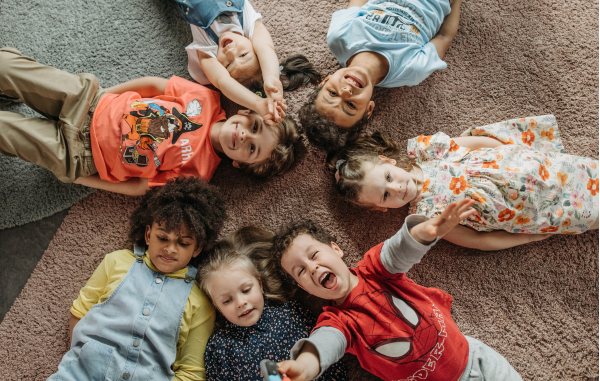

Secret Agent Society: The case for integrating mental health and social-emotional supports for kids with autism
Kids with autism commonly struggle to regulate their emotions, handle daily stressors in their lives, and navigate everyday social interactions which puts them at a higher risk of developing mental health challenges such as anxiety. Despite this reality, many community-based programs for children and families living with autism focus either on socio-behavioural or mental health – supports — but not both.
In Canada, 22.5% of children with autism experience anxiety disorders, compared to 4.8% of children who don’t have autism. Children with autism also experience difficulties with social-emotional skills such as developing desired friendships, in far greater numbers than their neurotypical peers.
Imagine there was a computer game your child loved to play, that would support their mental health and allow them to have thriving relationships with children and adults alike. Introducing Secret Agent Society an evidence-based innovation that integrates digital and real-life solutions to help kids with autism enjoy healthy lives.
With funding from Kids Brain Health Network (KBHN) to support moving the innovation into practice, Canadian research teams are helping children with autism build the skills they need to face these challenges. In collaboration with community, health care and government organizations, this evidence-based intervention brings a novel digitized platform into real-life practice within the Canadian context.
Developed by Dr. Renae Beaumont and distributed by Social Science Translated, Secret Agent Society (SAS) Small Group Program (SAS:SG) is a fun, espionage-themed platform that supports kids with autism to develop a range of socio-emotional skills across four skill areas including emotion recognition, emotion regulation, social skills, and social problem solving. SAS:SG is designed by a clinical psychologist to help children aged 8 to 12 years old who have difficulties with understanding emotions and expressing emotions in helpful ways. This innovative program is led by trained therapists who use animated game play, group activities and skills-training techniques to teach children how to manage their emotions. At the same time, it helps them learn important life skills such as problem solving, goal-setting, and communication. SAS:SG uses framework of elements from different evidence-based treatments, such as cognitive behavioural therapy techniques, combining them with fun “Secret Agent” activities to make learning enjoyable for kids.
Secret Agent Society for small groups in Canada: Following the evidence
The SAS:SG program has been implemented successfully with children around the world and is now beginning to gain traction in Canada. In 2021 and 2022, researchers supported by KBHN partnered with Toronto-area autism services to offer the Secret Agent Society Small Group Program to families.
Delivered in a clinician-led virtual or in-person small group format, the SAS online platform helps school-aged children “solve the mystery of social encounters” by learning the life skills they need to be successful in social situations while also engaging their adult support network (e.g., parents and teachers) to help children apply their SAS skills in real life. Through a range of themed activities and tools including role-playing through a digital board game and playing a multi-level computer game, the program targets core areas of difficulty for kids with autism while also respecting neurodiversity. This program can be tailored to focus on goals that a child and their family may be working to achieve including developing friendships, working in teams, problem-solving social situations, and recognizing emotions — while expressing them in helpful ways, coping with challenging ones, and communicating their own needs and goals.
SAS uses real-life scenarios to teach coping skills. The program also emphasizes the importance of self-care, relaxation, building resilience and developing emotional intelligence through activities like journalling, catching thoughts, regulating the breath, and mindfulness meditation.
SAS:SG has been implemented across Canada in both school-based and clinical settings, providing children with access to the support they need. The SAS Small Group child club meetings consist of nine sessions delivered over a period of ten to 20 weeks followed by additional booster sessions and is delivered by trained SAS facilitators including allied health and education professionals. The SAS Small Group Program consists of small group child sessions for ‘cadets’ (club meetings), parent group meetings, teacher information session and teacher tip sheets, paired with real-life practice missions and a system to monitor and reward skill development at home and at school.
Parents and therapists reported being highly satisfied with the program, and the children who completed the program saw improvements in their social and emotional skills. However, to reach all the kids who need programs like SAS, more autism centres and publicly-funded mental health and developmental services centres alike should be able to offer them.
Investigating SAS-GO!
In response to the need for mental health and social-emotional supports across multiple types of agencies, a team of Carleton University researchers are now training frontline staff through the SAS-GO! project. This research team has started testing the program in Ottawa-based community mental health and developmental service agencies to assess what is needed to scale the program for wider use.
To evaluate this community implementation of Secret Agent Society, the SAS-GO! team will measure child and parent outcomes, while learning how to support mental-health therapists and developmental-service staff in their efforts to improve the wellbeing of autistic kids. The project leaders are also addressing greater diversity, equity and inclusion uses for Canadians by working with French-speaking professionals and families to see what adaptations might be needed, to make this intervention work well for them, too.
What’s next for SAS in Canada?
As a national network, KBHN develops and harnesses scientific advances in technologies, interventions and supports with the goal of helping children with neurodevelopmental disabilities and their families live the best lives.
KBHN has previously funded trials at several sites across the country including Kerry’s Place, Surrey Place, Geneva Centre, Lake Ridge, Woodview, and Ron Joyce Children’s Hospital and currently trials of the SAS for small groups are ongoing at, Children’s Hospital of Eastern Ontario (CHEO), Crossroads Children’s Mental Health Centre and ACT Learning Centre. With support from KBHN, Secret Agent Society has the potential to become a widely accessible form of treatment support for autistic kids, and other neurodevelopmental disabilities. By working to translate research into practice, KBHN strives to ensure that evidence-based treatments and solutions are implemented and available across Canada.
Read more about scientific innovations and programs funded and supported by Kids Brain Health Network.
Additional information:
On May 16, Dr Vivian Lee presented at the Research Canada All Parliamentary Health Research Caucus Luncheon in Ottawa exploring game-changing pediatric health research and innovation!
The Mental Health of Early- and School-Aged Children is the theme for Dr Lee’s presentation at the event. Dr. Vivian Lee’s work looks at emotion regulation and healthy mental health in autistic children and their families.

Kids Brain Health Network is a Member of Research Canada: An Alliance for Health Discovery and Sponsor of the Parliamentary Health Research Caucus Buffet Luncheon, Reinventing Children’s Health through Game-Changing Pediatric Research and Innovation. Visit rc-rc.ca to learn more.
